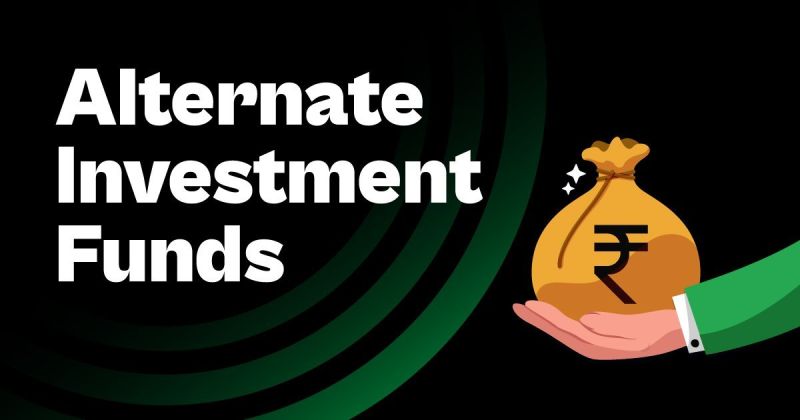- Borivali West, Mumbai, Maharashtra
- +91-9892545310
Investment Services
Leading Manufacturers of Alternative Investment Fund Service, Bonds Investment Service, Direct Equity Service, Fixed Deposit Service, Mutual Fund Service, Portfolio Management Service and Smallcase Investment Service from Mumbai.
In AIF schemes, pooled Investments made in venture capital, private equity, hedge funds, long short strategies etc. are called alternative investments. In other words, an investment not made in conventional investment avenues such as stocks, bonds, real estate etc. may be considered as alternative investments.
Alternative Investment Funds (AIFs) are defined in Regulation 2(1) (b) of SEBI (Alternative Investment Funds) Regulations, 2012. It refers to any privately pooled investment fund, in the form of a trust or a company or a body corporate or a Limited Liability Partnership (LLP).
As per SEBI, AIFs are classified in three broad categories. Category I & II AIF are close ended & the tenure of the scheme is minimum three years. Whereas Category III AIF can be open ended or close ended.
Category I AIF
· Mainly invests in start- ups, SME's, social ventures, venture capital, infrastructure or any other sector which Govt. considers economically and socially viable for the Indian economy.
· Venture Capital Fund Infrastructure Fund Social Venture Fund Angel Fund
Category II AIF
· These include Alternative Investment Funds such as private equity funds or debt funds which invest in equities and/or debt securities and which are not provided by any specific incentives or concessions by the government or any other Regulator.
· Private Equity Fund Debt Fund Fund of Funds
Category II AIF
· Alternative Investment Funds such as hedge funds or funds which trade with a view to make short term returns or such other funds for which no specific incentives or concessions are given by the government or any other Regulator.
· Hedge Fund
· Private Investment in Public Equities (PIPE) Fund
A bond is a fixed income instrument in which investor loans money to an entity (Corporate or Government) which borrows the funds for a defined period of time at a variable or fixed interest rate. Bonds are used by Corporate or Government to raise money and finance a variety of projects or activities.
It is a market meant for trading (i.e. buying or selling) fixed income instruments. Fixed income instruments could be securities issued by Central and State Governments, Municipal Corporations, Govt. Bodies or by Private entities like Financial institutions, Banks, Corporate, etc.
Why invest in Bonds?
· Regular fixed income
· Higher interest rate
· No TDS on GSec, SDL, SGS
· Portfolio diversification
· Tradable publicly
There were many public issues where we have seen successful listings of RBL Bank, Avenue Supermarts, Ujjivan Finance and many more. Most of these shares were actively traded in the unlisted space where investors saw significant gains when the stock got listed.
Purchasing unlisted equity through secondary market is relatively easier way for retail investors to get exposure to a privately held company. This has emerged as a new investment option for the investor.
Benefits
- Novel Investment option aiding in diversification of overall portfolio.
- Entry to new age businesses at an early stage providing scope of immense growth.
- Availability in smaller ticket sizes allows portfolio creation of unlisted securities.
- Limited correlation with listed market space leads to stable prices in short term.
- Exposure to vast unlisted small and medium enterprises.
Key Risks
- Price/Valuation Discovery of shares’ in unlisted space can be difficult; unlike listed space.
- Stock Liquidity is mainly dependent on demand and supply. If there is a poor demand for any unlisted stock, then it may lengthen investment cycle in case of non-listing of the scrip.
- Transaction and Trading price are outside the purview of Regulatory Authority.
- One-year Lock-in aer stock listing; exposes investor to volatility post listing.
- Early-stage companies could pose higher risk for a business model failure.
About Fixed Deposit
· Fixed Deposit is one of the most preferred investment options among conservative investor who need fixed and regular income.
· Fixed Deposit also popularly known as Term Deposit is an investment option wherein interest rate is fixed for a predefined term.
· Deposits placed by an investor with companies are known as Company Fixed Deposit. These deposits are accepted by manufacturing companies, financial institutions and non-banking finance companies. Deposits mobilized by these companies are governed by the Companies Act u/s 58A.
Basic Info About Fixed Deposit
· The tenure of company FDs can range from a few months to a few years.
· You can choose from monthly, quarterly, half-yearly, yearly or cumulative interest payment option.
· The interest income rate earned on FD is added to your income and is taxed as per your income tax slab.
· In cases where the annual interest income exceeds Rs 5,000; TDS will be deducted by the company.
· If you do not want the TDS to be deducted, you need to submit form15G/H with the company.
· Click here to download Form 15G OR Form 15H
How does Fixed Deposit work?
· 100% online process. Quickest way to book an FD in 3 simple steps
· Choose the company & tenure to invest in FD
· Select the client to invest in Primary or Joint names
· Enter the amount to invest and make payment
· Maturity amount will be credited to the bank account registered with FundzBazar
A mutual fund is a type of investment vehicle consisting of a portfolio of stocks, bonds or other asset classes. Mutual funds give small or individual investors access to diversified, professionally managed portfolios at a low price. Mutual funds are divided into several kinds of categories, representing the kinds of securities they invest in, their investment objectives, and the type of returns they seek.
Facts that you must know before investing in mutual fund:
1. Mutual Fund is not necessarily all about equity or stocks. Mutual funds also deal into debt instruments like Certificate of Deposits (CDs), Bonds, Govt. Securities (G-Sec.), Non-convertible Debentures (NCDs) etc. This means that a mutual fund scheme can also have all or some of these debt instruments in its portfolio. MF schemes that are having debt papers of very small duration are least risky. Similarly, carefully chosen debt MF schemes can be as safe as fixed deposits along with better tax-adjusted return. Contact MF Distributor and start investing in equity, debt, hybrid or multi asset allocation schemes as per your need and investment horizon.
2. Starting your investment in Mutual Fund is easy. All you need is to be KYC compliant and have an active bank account. That’s it. At FundzBazar (check the login section of this site to register or sign-in to trade instantly in mutual fund schemes) you can even invest completely online and instantly that too without having any demat a/c!.
3. Investment in Mutual Fund can be made in lump sum or systematically.
a. Through Systematic Investment Plans ( SIP ) you can invest a fixed amount at regular intervals for any number of years. This way your investments will reap the benefit of rupee cost averaging i.e. buying more units when price is low and buying lesser units when price is high.
b. If you need regular withdrawals from your Mutual Fund investment, then Systematic Withdrawal Plan ( SWP ) is the best option. Here a fixed amount (set by you) will be automatically withdrawn for preset number of years. Depending on the fund available and withdrawal amount, this will continue.
c. If you are concerned about short term volatility while making a lump sum investment, then go for Systematic Transfer Plan ( STP ). Here, the lump sum money will be first invested in a liquid scheme (low risk debt fund) and then from there, a fixed amount will be transferred to a chosen equity scheme of the same fund house. This way, exposure in equity scheme will be made on a staggered basis and hence risk is minimized in case of volatile market movements.
4. How are your Mutual Fund investments taxed? If in portfolio of a MF scheme, percentage of exposure into equity type of instruments is more than or equal to 65%, then such schemes are known as equity schemes, otherwise those would be considered as debt schemes for taxation purpose. Equity schemes and debt schemes are taxed differently. Taxing also depends on how long you hold the investment before you sell. If gain from equity scheme is booked before 1 year is completed then such gain would be taxed at flat 15% rate. If equity schemes are sold after holding for more than a year – then 10% tax is to be paid on gain made over and above Rs. 1 lakh. If debt schemes are held for more than three years then 20% tax is to be paid on indexed (i.e. inflation adjusted) capital gain. If investments in debt schemes are held for shorter-term then tax is to be paid on booked gain amount as per one’s tax slab.
PMS is a tailor-made professional service offered to cater the investment objective of different investor classes. The clients can be Individuals or Institutional entities with high net worth. In simple words, a PMS provides professional management of investments to create wealth. PMS offers various customized portfolios depending on investors risk appetite and returns expectation. In such discretionary portfolios, fund manager takes investment decision on behalf of the investor.
Features of PMS
· Professional Management : PMS provides professional management of portfolios with the objective of delivering consistent long-term performance while controlling risk.
· Risk Control : Well defined investment philosophy & strategy acts as a guiding principle in defining the investment universe. Further, professional management ensures disciplined portfolio construction, monitoring and the risk management processes.
· Transparency : Most of the PMS houses provide account statements and performance reports on a monthly basis along with web access to track all information relating to investments made ensuring enhanced transparency.
· Personalized Approach : In PMS, investor gain direct personalized access to the professional money managers who actively manage their portfolios. This interaction may come in various different ways including in-person meetings, conference calls, written commentary, etc with the fund management team.
Benefits of PMS
· Stock selection is based on high level of investment expertise and research.
· PMS normally has a concentrated portfolio of 15-20 stocks.
· A concentrated portfolio increases the potential of higher returns.
· Clients receive regular reporting and personal service
· PMS are transparent in terms of expenses they charge
What is a smallcase?
A smallcase is a basket of exchange traded securities (like stocks & ETFs) to reflect a certain objective (ideas, themes, strategies). A smallcase has a minimum of 2 securities and a maximum of 50 securities.
How is it different from stocks?
Investing in a basket of stocks gives you diversification benefits that minimize stock-specific risk. Instead of picking stocks, you can invest in ideas you believe in with research-backed portfolios that are tied to relatable themes. No fees are charged for smallcase transactions. Standard brokerage applicable as per your broker.
Which smallcase should you invest in?
smallcases work best when used for long-term investing. So ideally, you should be investing in a smallcase whose theme/strategy you think will do well in long run. Additionally, you can use risk labels assigned to smallcases to find one that suits your risk appetite.
How do you track your smallcases?
When you invest in a smallcase, the index value is set to 100 on the day of investment - this helps you track the total returns without having to monitor each stock. You can also use the performance metrics to get a more detailed understanding of your smallcase.
Can you add or remove stocks yourself?
With smallcases, you have complete flexiblity over your investments, so you can add or remove stocks anytime with the 'manage' option. However, please ensure that you don't sell any smallcase stocks directly on the trading platform.
Are there any lock in periods?
There are no lock-in periods, so you may sell your smallcases anytime. As a concept however, smallcases work best when used for long-term investing.
Do's and Don'ts
Start an SIP to invest periodically
Once you have invested in a smallcase, you can safeguard your investments from market volatility by starting SIP to invest more regularly. When your SIP instalment is due, you can confirm investing more in 2 clicks.
Rebalance your smallcases regularly
Rebalancing is the process of ensuring the constituents of the smallcase continue to be true to the underlying idea/strategy. You can apply rebalance updates to your smallcase in 2 clicks to ensure it is on track with the strategy.
Do not sell stocks on broker platform
To ensure that your smallcase constituents are in sync with your holdings, please refrain from selling smallcase stocks on the trading platform. Any sell orders placed directly on the trading platform won't reflect in your smallcase.
Don't let emotion drive investment decisions
You can assess how the theme that you have invested in is playing out and reap its benefits only when you stay invested for a long term. It's best to not base investment decisions on short-term fluctuations.







